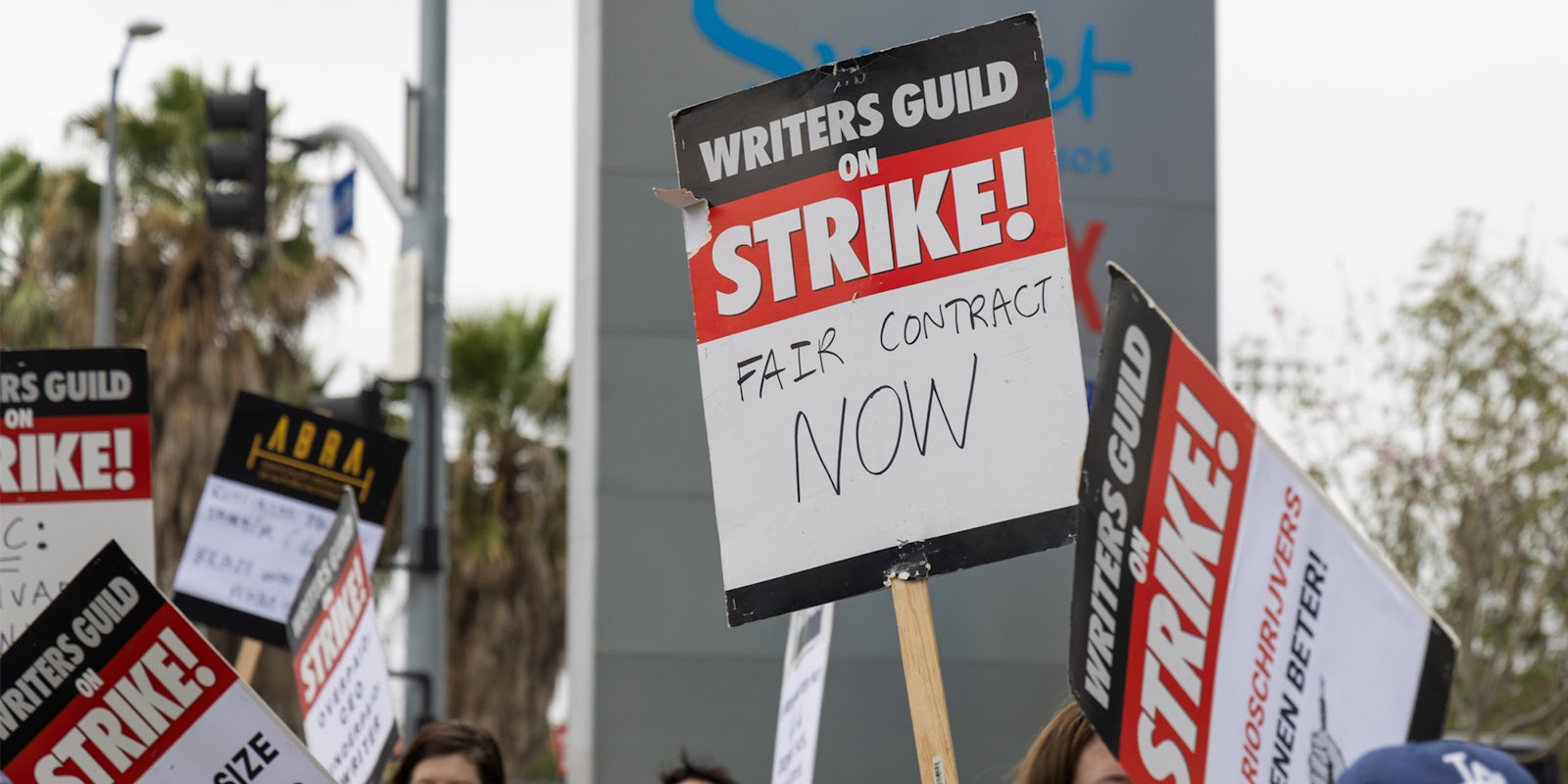Ten weeks into the writers’ strike, Hollywood studios show no sign of backing down.
While screenwriters continue to campaign for fair pay and workplace protections—with the Screen Actors Guild (SAG-AFTRA) potentially joining them soon—Deadline just published an article suggesting that studios could refuse to negotiate for “months.”
The article also includes incendiary quotes from anonymous insiders saying the studios want to “break the WGA” and “drag on until union members start losing their apartments.” In other words, a direct statement that studio bosses would rather ruin the lives of writers than allow them to negotiate for better pay.
These comments earned widespread blowback from screenwriters and film workers on Twitter, with writer and WGA organizer Shawn Wines (Gordita Chronicles) describing it as “strikebreaking PR bullshit” and “desperate fearmongering from the side that’s losing.”
He also warned people to look out for “hit pieces on WGA leadership soon.” Deadline is often accused of siding with the studios and AMPTP (Alliance of Motion Picture and Television Producers) and portraying strikers in a negative or misleading light.
The two prevailing responses here are that the studios/AMPTP are trying to intimidate strikers into submission—but that their threats don’t hold much weight. Not just because writers are already broke (making the “you’ll lose your apartment” threat a moot point), but because a months-long strike is an equally undesirable scenario for the studios themselves.
Right now, studio bosses want to play hardball and look as tough and nasty as possible. But will this tactic actually work? WGA strikers still seem heavily invested, and a SAG-AFTRA strike may follow at any minute. The Actors’ Guild contract expires at midnight PT on Wednesday, with studio power players calling in federal mediators to try and prevent a work stoppage.
If the actors do go on strike, the industry will grind to a halt—including promotional tours for financially crucial blockbusters like Barbie and Oppenheimer. It certainly makes sense for studios to start panicking, even as their representatives try to sound unwaveringly tough in the press.



